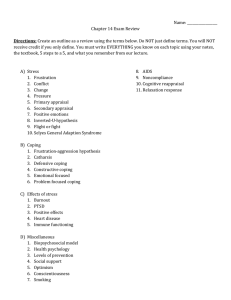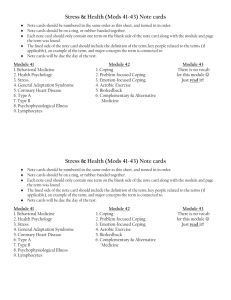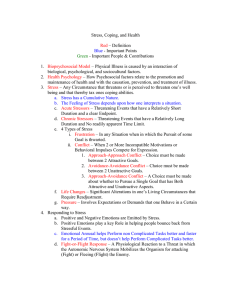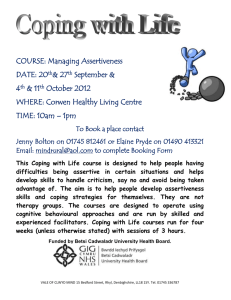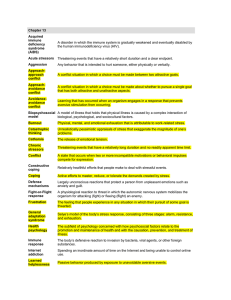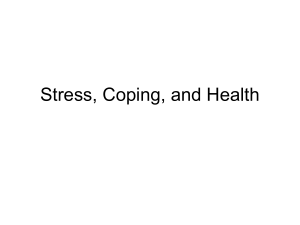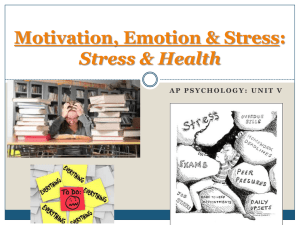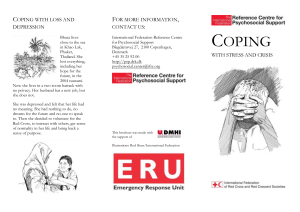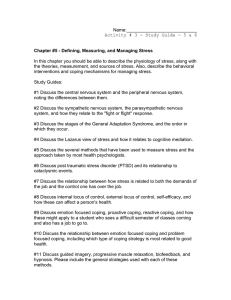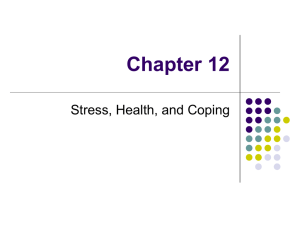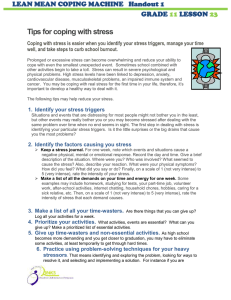Review Quiz Chapter 13 Provide an original example of a stressful
advertisement
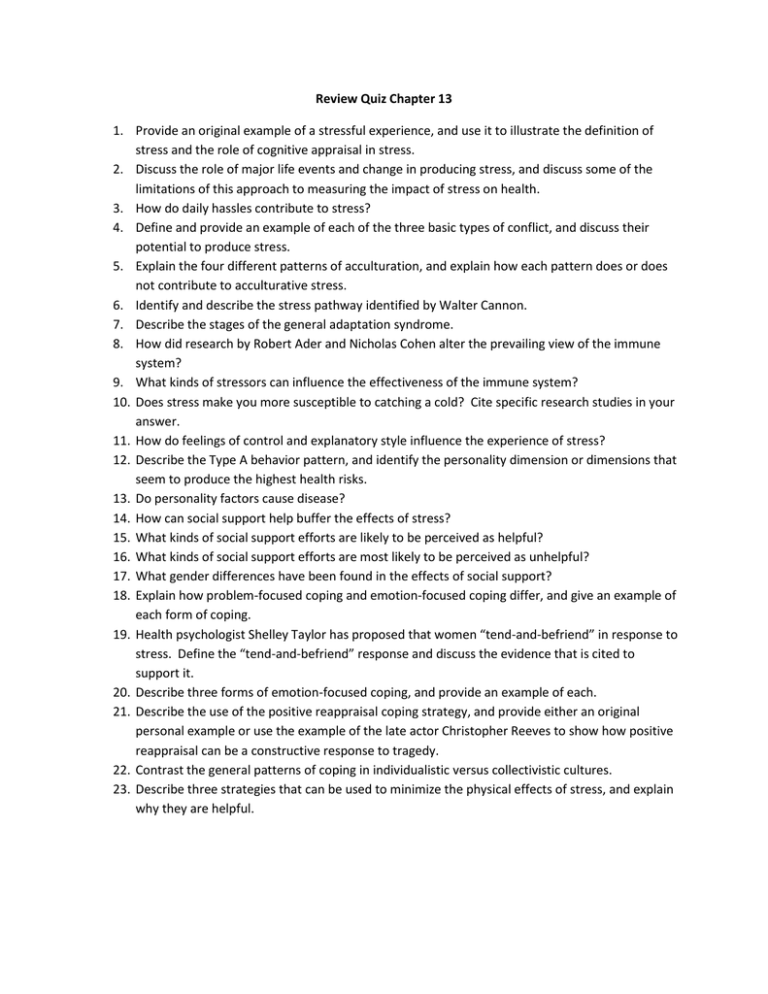
Review Quiz Chapter 13 1. Provide an original example of a stressful experience, and use it to illustrate the definition of stress and the role of cognitive appraisal in stress. 2. Discuss the role of major life events and change in producing stress, and discuss some of the limitations of this approach to measuring the impact of stress on health. 3. How do daily hassles contribute to stress? 4. Define and provide an example of each of the three basic types of conflict, and discuss their potential to produce stress. 5. Explain the four different patterns of acculturation, and explain how each pattern does or does not contribute to acculturative stress. 6. Identify and describe the stress pathway identified by Walter Cannon. 7. Describe the stages of the general adaptation syndrome. 8. How did research by Robert Ader and Nicholas Cohen alter the prevailing view of the immune system? 9. What kinds of stressors can influence the effectiveness of the immune system? 10. Does stress make you more susceptible to catching a cold? Cite specific research studies in your answer. 11. How do feelings of control and explanatory style influence the experience of stress? 12. Describe the Type A behavior pattern, and identify the personality dimension or dimensions that seem to produce the highest health risks. 13. Do personality factors cause disease? 14. How can social support help buffer the effects of stress? 15. What kinds of social support efforts are likely to be perceived as helpful? 16. What kinds of social support efforts are most likely to be perceived as unhelpful? 17. What gender differences have been found in the effects of social support? 18. Explain how problem-focused coping and emotion-focused coping differ, and give an example of each form of coping. 19. Health psychologist Shelley Taylor has proposed that women “tend-and-befriend” in response to stress. Define the “tend-and-befriend” response and discuss the evidence that is cited to support it. 20. Describe three forms of emotion-focused coping, and provide an example of each. 21. Describe the use of the positive reappraisal coping strategy, and provide either an original personal example or use the example of the late actor Christopher Reeves to show how positive reappraisal can be a constructive response to tragedy. 22. Contrast the general patterns of coping in individualistic versus collectivistic cultures. 23. Describe three strategies that can be used to minimize the physical effects of stress, and explain why they are helpful.
